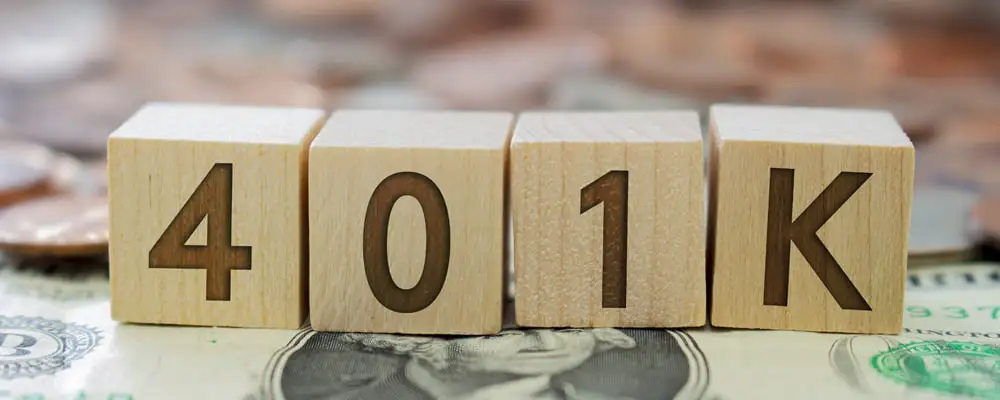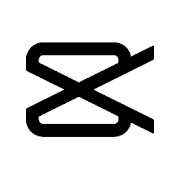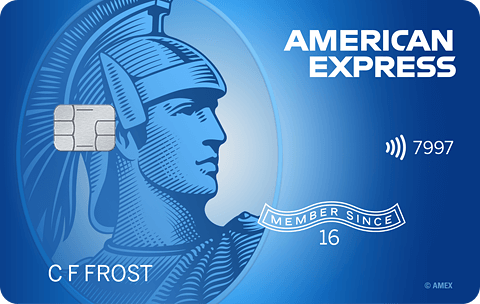What Exactly Is a 401(k) Plan? Everything You Should Know

Here we are discussing What Exactly Is a 401(k) Plan? Everything You Should Know in this article. 401(k) plan is a type of retirement savings plan that many firms in the United States provide. It allows employees to save some money from their salaries to a tax-advantaged account. The money in the account is invested, and employees can withdraw the money tax-free in retirement.
It allows you to set aside a certain amount of your earnings for retirement. Many workplaces offer matching funds, which can help you save even more.
What Exactly Is a 401(k) Plan
A 401(k) plan is a type of retirement account provided by companies. Employees can choose to have a portion of their earnings deducted from their paychecks and put into their 401(k) accounts. All of these deductions are pretax, which means they are withdrawn from your paycheck before taxes are deducted. This lowers an employee’s taxable income, which means they will pay less in taxes that year.
401(k) plans also have benefits for employers. They can attract and retain employees, and they can deduct contributions from their federal income taxes. Here we have all the details What Exactly Is a 401(k) Plan? Everything You Should Know.
Here are some quick facts about how 401(k)s work
- 401(k)s are retirement savings plans offered by many employers in the United States.
- Employees can choose how much to contribute to their 401(k) plans, up to a certain limit set by the Internal Revenue Service (IRS).
- Employee offerings can also be matched by employers..
- The money in a 401(k) account is invested, and employees can withdraw the money tax-free in retirement.
How 401(k)s Plan Work?
Your company will inform you of the enrollment deadline if it has a 401(k) plan. You could be able to begin immediately, or you might have to wait until the end of a probation term.
You will be able to select the amount and mode of investment of the funds you want to contribute when you enroll. But the amount you can contribute is limited. Additionally, consider that certain companies match contributions when deciding how much to contribute.
What Is the Max 401(k) Contribution?
The maximum 401(k) contribution for employees under age 50 in 2023 is $20,500. Employees age 50 or older can make catch-up contributions of $7,500 per year, for a total 401(k) contribution limit of $28,000.
It’s important to note that these are the maximum contribution limits set by the IRS. Your employer may have lower contribution limits, so be sure to check with your HR department to find out what your specific contribution limit is.
What Is 401(k) Matching Contribution?
A 401(k) matching contribution is a contribution that an employer makes to an employee’s 401(k) Fund based on the employee’s contributions. For example, if an employer offers a 50% match on employee contributions up to 6% of the employee’s salary, and the employee contributes 6% of their salary to their 401(k), the employer will contribute an additional 3% to the employee’s account.
401(k) matching contributions are a valuable benefit that can help employees save for retirement more quickly and efficiently. They are also a great way for employers to attract and retain top talent.
What Is a 401(k) Catch-Up Contribution?
A 401(k) catch-up contribution is a type of retirement savings contribution that allows people aged 50 or older to make additional contributions to their 401(k) accounts. The Internal Revenue Service (IRS) sets the annual catch-up contribution limit each year, and the limit has been increasing steadily in recent years. In 2023, the catch-up contribution limit is $7,500, up from $6,500 in 2022.
Catch-up contributions can be a great way for older workers to boost their retirement savings. The IRS allows catch-up contributions because it recognizes that older workers may have less time to save for retirement and may need to make larger contributions to catch up.
To make catch-up contributions, you must be eligible to participate in your employer’s 401(k) plan and you must be age 50 or older. You must also check with your employer to see if they offer catch-up contributions. Not all employers offer catch-up contributions, and some employers may have lower catch-up contribution limits than the IRS limit.
What Are the Types of 401(k) Plans?
There are two main types of 401(k) plans: traditional 401(k) plans and Roth 401(k) plans. The basic difference between the two is the taxation of contributions and withdrawals.
Traditional 401(k) Plans
With a traditional 401(k) plan, you make contributions on a pre-tax basis, which means that your contributions are deducted from your paycheck before taxes are taken out. This can help you reduce your taxable income and save money on taxes. Your contributions grow tax-deferred, which means that you don’t have to pay taxes on the investment earnings until you withdraw the money in retirement. Withdrawals from traditional 401(k) accounts are taxed as ordinary income.
Roth 401(k) Plans
With a Roth 401(k) plan, you make contributions on an after-tax basis, which means that you pay taxes on your contributions before they are deposited into your account. However, your contributions grow tax-free, and withdrawals from Roth 401(k) accounts are tax-free in retirement, provided that you meet certain requirements, such as being at least age 59½ and being in the account for at least five years.
Other Types of 401(k) Plans:
In addition to traditional and Roth 401(k) plans, there are a few other types of 401(k) plans, including:
Safe harbor 401(k) Plans:
Safe harbor 401(k) plans are designed to make it easier for small businesses to offer 401(k) plans to their employees. 401(k) Safe harbor plans have certain requirements that must be met, but they offer certain advantages, such as being less likely to fail nondiscrimination testing.
SIMPLE 401(k) plans:
SIMPLE 401(k) plans are another type of 401(k) plan that is designed for small businesses. 401(k) SIMPLE plans have fewer requirements than safe harbor 401(k) plans, but they also offer fewer advantages.
Solo 401(k) plans:
Solo 401(k) plans are designed for self-employed individuals and business owners with no employees. 401(k) Solo plans allow individuals to make both employee and employer contributions to their accounts.
What Kind of 401(k) Plan Is Best for You?
The best type of 401(k) plan for you depends on your individual circumstances. If you are able to make after-tax contributions and you expect to be in a higher tax bracket in retirement, then a Roth 401(k) plan may be a good option for you. When you are not able to make after-tax contributions or you expect to be in a lower tax bracket in retirement, then a traditional 401(k) plan may be a better option.
If you are not sure which type of 401(k) plan is right for you, you should talk to a financial advisor.
What Are the Benefits of a 401(k)?
401(k)s provide benefits as now and in the future. They are as follows:
Reduce Your Current Taxes:
Suppose you earn $60,000 per year. You contribute $5,000 to your 401(k) each year. You are taxed on $55,000 rather than $60,000, which reduces your tax liability. That may not seem like much, but every little bit helps when it comes to taxes. When you take money from the account in the future, you will be taxed on your contributions.
Tax-Deferred Growth:
Until you withdraw funds, you do not have to pay taxes on the interest you earn. Because your money remains in your account and earns interest, it grows faster.
Potential Contributions from Employers
It’s always nice to have free money. Aim to contribute the greatest amount your employer will match to a 401(k) if you are unsure of how much to contribute. If your employer matches up to 3% of your income, for instance, try to contribute at least that much.
What Are the Disadvantages of a 401(k) Plan?
The disadvantages of a 401(k) plan include limited investment choices, fees, penalties for early withdrawals, required minimum distributions, potential tax burdens in retirement, contribution limits, vesting schedules for employer matches, market risks, limited flexibility, and complexity in managing the account.
Can You Withdraw Money From a 401(k) Plan?
Yes, you can withdraw money from a 401(k) plan, but there are rules and potential consequences associated with withdrawals. Here are some important points to think about:
Age-Related Rules:
Early Withdrawals: If you withdraw money from a 401(k) before the age of 59½, you will generally incur a 10% early withdrawal penalty in addition to income taxes. There are certain exceptions, such as medical bills and first-time house purchases.
Age 59½ and Older:
Once you reach age 59½, you can take withdrawals from your 401(k) without the 10% penalty. You will still owe income tax on the withdrawals in the case of a traditional 401(k).
Required Minimum Distributions (RMDs):
In a traditional 401(k), you must start taking required minimum distributions (RMDs) once you reach a certain age (currently 72, but it was 70½ for those who reached that age before January 1, 2020). These are mandatory withdrawals, and failing to take them can result in substantial penalties.
Hardship Withdrawals:
Some 401(k) plans allow for hardship withdrawals if you can demonstrate an immediate and heavy financial need. However, these withdrawals are subject to penalties and income tax.
Rollovers:
If you change jobs or retire, you can roll over your 401(k) funds into an Individual Retirement Account (IRA) or your new employer’s 401(k) plan without incurring taxes or penalties.
Loans:
Some 401(k) plans allow you to take out a loan from your account, which must be repaid with interest. If you do not repay the loan, you may face penalties and taxes.
Roth 401(k):
In a Roth 401(k), contributions are made with after-tax dollars. You can withdraw your contributions at any time without penalty or tax, but earnings may be subject to penalties and tax if withdrawn before age 59½.
It’s important to understand the specific rules and provisions of your 401(k) plan, as they can vary among different employers and plan administrators. In general, 401(k) plans are intended for retirement savings and early withdrawals should be considered a last resort due to the potential penalties and tax consequences.
What Happens to Your 401(k) When You Leave Your Employer?
When you leave your job, you have various options regarding what to do with your 401(k). The decision you make can have a major impact on your retirement funds. Here are some common options:
- Leave It with Your Former Employer: You can choose to leave your 401(k) with your former employer if they allow it. Your investments will continue to grow tax-deferred, and you’ll have the option to make changes to your investment allocation. However, you won’t be able to make new contributions, and you’ll need to manage the account independently.
- Roll It Over to a New Employer’s Plan: If your new employer offers a 401(k) plan and allows rollovers, you can transfer your old 401(k) funds to the new plan. This keeps your retirement savings consolidated in one place
- Roll It Over to an IRA: You can roll over your 401(k) into an Individual Retirement Account (IRA). This offers more investment choices and flexibility than a typical employer-sponsored 401(k). It’s a common choice for those who want more control over their investments.
- Cash Out the Account: While possible, cashing out your 401(k) is generally not advisable. This option can trigger income taxes and a 10% early withdrawal penalty if you’re under 59½. It can significantly deplete your retirement savings.
- Convert to a Roth IRA: You can convert your traditional 401(k) to a Roth IRA. This entails paying taxes on the converted amount but enables tax-free withdrawals in retirement. Be advised that this may have tax ramifications, and it is normally recommended that you make the conversion if you are in a lower tax bracket.
- Keep It in a Safe Harbor Account: If you do not act quickly, your former company may convert your 401(k) into a safe harbor account, such as a “Rollover IRA.” This assures that your assets are safe, but you will not be actively managing them.
Is a 401(k) a Good Idea?
When considering what to do with your 401(k) when you quit your job, keep your financial goals and personal circumstances in mind. Each strategy has advantages and disadvantages, and you should speak with a financial expert to identify the best option for your retirement planning. Also, be aware of any time constraints or fees associated with your 401(k) rollover possibilities, as they can differ depending on the plan and provider.





